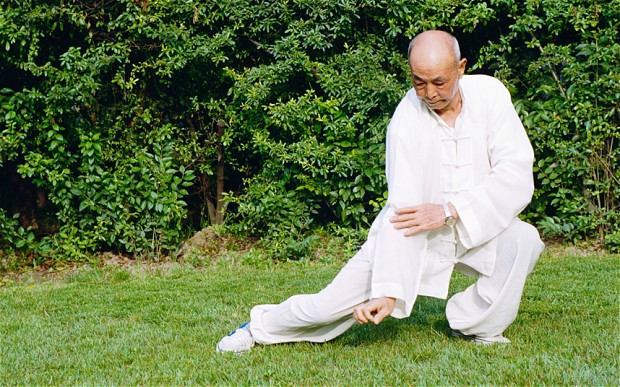Tai Chi Makes Your Brain Bigger and Improves Memory

Tai Chi makes your brain bigger and can improve memory and thinking - possibly delaying the onset of Alzheimer’s disease, claim scientists.
A new study has revealed how elderly people practising Tai Chi - an ancient Chinese form of slow, meditative exercise - just three times a week can boost brain volume and improve memory and thinking.
As the exercise increases mental activity, scientists believe it may be possible to delay the onset of incurable Alzheimer’s in pensioners.
Dementia and the gradual cognitive deterioration that precedes it is associated with increasing shrinkage of the brain, as nerve cells and their connections are gradually lost.
Previous research has shown Tai Chi can help relieve stress, improve balance in the elderly and stave of high blood pressure - helping those who suffer from heart disease.
Although scientists know brain volume can be increased in people who participate in aerobic exercise, this is the first study to show a less physical form of working out, like Tai Chi, can have the same results.
Researchers conducted an eight month controlled trial on Chinese seniors, comparing those who practiced Tai Chi three times a week to a group with no intervention.
Participants also had lively discussions three times a week over the same time period, with results showing a similar increase in brain volume and improvements on memory and thinking as those exercising.
Findings also revealed the group who did not participate in Tai Chi showed brain shrinkage over the eight months - consistent with what generally has been observed for elderly people in their 60s and 70s.
The research suggests forms of exercise like Tai Chi, that include an important mental health exercise component, are associated with increased production of brain growth factors like aerobic exercise.
Dr James Mortimer, of the University of South Florida, said: “If this is shown, then it would provide strong support to the concept of ‘use it or lose it’ and encourage seniors to stay actively involved both intellectually and physically.
“The ability to reverse this trend with physical exercise and increased mental activity implies that it may be possible to delay the onset of dementia in older persons through interventions that have many physical and mental health benefits.
“Epidemiologic studies have shown repeatedly that individuals who engage in more physical exercise or are more socially active have a lower risk of Alzheimer’s disease.
“The current findings suggest that this may be a result of growth and preservation of critical regions of the brain affected by this illness.”
The study, helped by Fudan University, China, was published in the Journal of Alzheimer’s Disease.
-
22 June 2016

